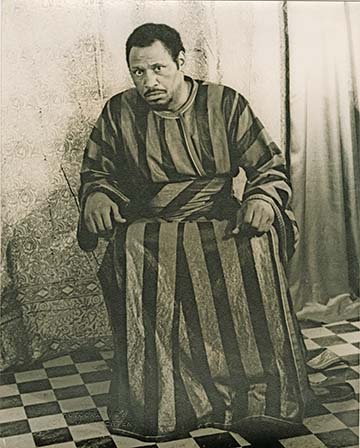240 years ago (1778)
During the Revolutionary War, the U.S. Continental Congress suppresses theatre on moral grounds, following a 1774 ban based on lawmakers’ belief that theatre was a waste of money. The new motion argues that states should prohibit “theatrical entertainments, horseracing, gaming, and such other diversions as are productive of idleness, dissipation, and a general depravity of principles and manners.”
120 years ago (1898)
Jane Addams, co-founder of Hull House in Chicago, one of the first settlement houses in the U.S., announces plans for construction of a theatre building. Addams believes that dramatic performance offers educational opportunities and wishes to offer theatre that more authentically represents life than vaudeville and melodrama, genres that had initially prompted the community to object on moral grounds. A Shakespeare reading club had led to a play performance in 1896, which historians will call the beginning of the nation’s first settlement theatre. In 1899 the new theatre will open with an adaptation of The Odyssey, performed in Greek, which inspires local immigrant groups to stage pieces in their native languages. Under the direction of Laura Pelham, the Hull House Players will be considered a key part of the Little Theatre movement and one of the country’s first art theatres.
75 Years ago (1943)

Paul Robeson becomes the first black actor to perform Othello on Broadway, reprising a role he first portrayed in London in 1930. Co-starring Uta Hagen and José Ferrer, the production will run for 296 shows, becoming Broadway’s longest-running Shakespeare play. Historians will say that Robeson’s performance transformed mainstream perception of the race of the character, which had been primarily played by white actors.
70 years ago (1948)
Electra Garrigó, the first play by author Virgilio Piñera, receives its world premiere in Havana, Cuba. A radical adaptation of the Sophocles play that combines high art and flippant humor, the debut scandalizes the Cuban theatre establishment. Allegedly one director walks out mid-performance, proclaiming the play “a spitball thrown at Olympus.” Scholars will consider the piece the beginning of contemporary Cuban theatre.
50 years ago (1968)
The Alliance Theatre is founded as the Atlanta Municipal theatre. The Alliance will become the largest regional theatre in the Southeast, serving more than 250,000 annually. Under artistic director Kenny Leon, the organization will work to diversify its staff and programming to connect with audiences of color; and during the tenure of Leon’s successor, Susan V. Booth, the company will win the Regional Theatre Tony Award in 2007.
40 years ago (1978)
The first Tuesday in October witnesses the Broadway debut of The First Monday in October, Jerome Lawrence and Robert E. Lee’s play starring Jane Alexander as the fictional first female Supreme Court Justice. (Sandra Day O’Connor will earn the real-life distinction three years later.) Opposite Alexander, who will receive a Tony nod for her performance, is Henry Fonda, in his final production on the Great White Way.
25 years ago (1993)
Writers Theatre in Glencoe, Ill., opens the third show of its inaugural season, Dorothy Bryant’s Dear Master: A Dialogue in Letters, based on letters between 19th century authors George Sand and Gustave Flaubert. The production, like the others this first season, is helmed by artistic director Michael Halberstam. The company will go on to become one of the Chicago area’s premier Equity theatre companies.


